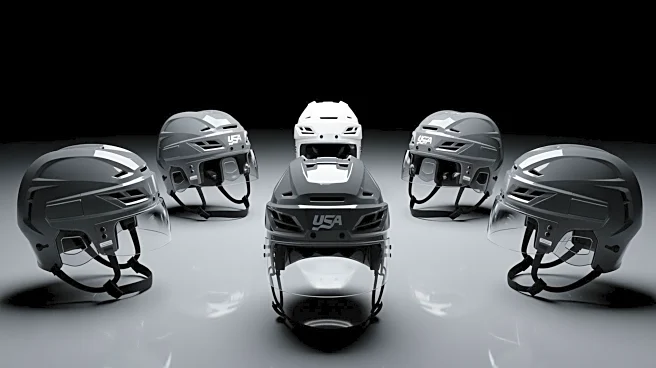What's Happening?
Team USA has announced the addition of five more players to its roster for the upcoming 2025 Spengler Cup in Davos. Among the new additions is Charlie Cerrato, the NCAA's top scorer, who will join other
elite college stars in the competition. The Spengler Cup is a historic international hockey tournament that attracts teams from around the world, providing a platform for players to showcase their skills on an international stage. The inclusion of these players highlights Team USA's strategy to leverage young talent from the collegiate level to compete against seasoned international teams.
Why It's Important?
The participation of NCAA players in the Spengler Cup is significant as it underscores the growing importance of collegiate hockey in the development of future professional players. By competing in such prestigious tournaments, these players gain invaluable experience and exposure, which can enhance their prospects for professional careers. For Team USA, this strategy not only strengthens its roster but also promotes the development of hockey talent within the United States. The Spengler Cup serves as a critical opportunity for these players to test their skills against international competition, potentially influencing their future in the sport.
What's Next?
As the Spengler Cup approaches, Team USA will continue to finalize its roster and prepare for the competition. The tournament will provide a platform for these players to demonstrate their abilities and potentially attract attention from professional scouts. The performance of Team USA in the Spengler Cup could impact the perception of NCAA hockey as a viable pathway to professional leagues, influencing recruitment and development strategies within the sport.
Beyond the Headlines
The inclusion of NCAA players in international tournaments like the Spengler Cup highlights the evolving landscape of hockey development in the United States. It reflects a broader trend of integrating collegiate athletes into international competitions, which can have long-term implications for the sport's growth and popularity. This approach may encourage more young athletes to pursue hockey at the collegiate level, knowing that it can lead to international exposure and professional opportunities.










